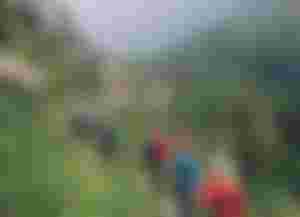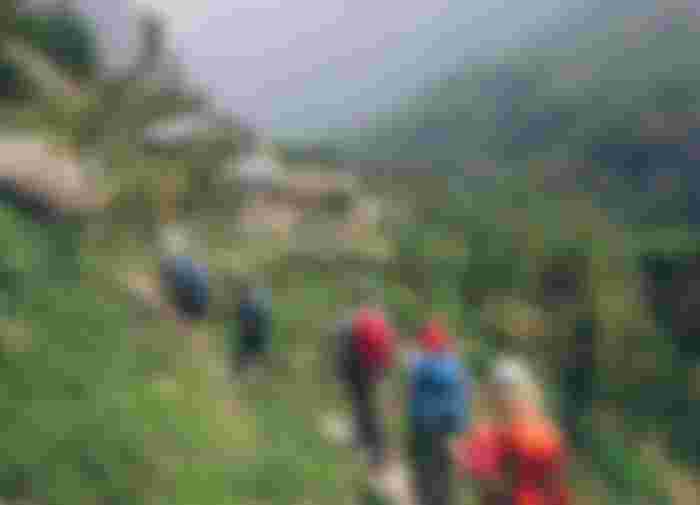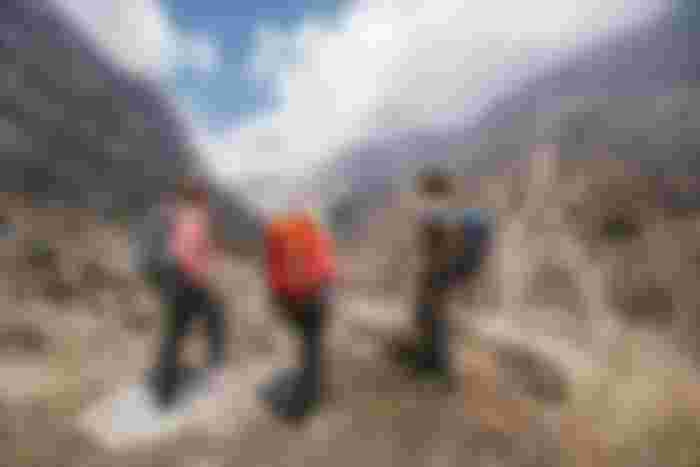Preparation, training, equipment, fitness, nutrition… this text summarizes all the information whether you are just planning to go hiking or preparing for serious trekking adventures.

What is EST Adventure and why are we relevant to writing on this topic?
In the past 20 years we have gained a lot of experience, from the mountains in Serbia and the region to the Himalayas and Mount Everest, Kilimanjaro, Aconcagua, Mont Blanc… Under our supervision over 1000 mountaineers from the region climbed peaks above 5000m, 400 climbers successfully climbed peaks over 6000m, and 25 of them had the opportunity to see the world from the peaks at an altitude of over 8000m.
On weekends, we organize tours in the mountains of Serbia, and our treks around the world are for those who want adventure, like to spend their holidays actively, learn something new and get to know the culture of people from rural mountains around the world.
Hiking (trekking) and hiking
Hiking and Trekking mean walking in nature, the same necessary equipment and strenuous physical activity, but the differences between the two concepts still exist. Hiking is more about walking through famous landscapes, landscaped hiking trails and adequate accommodation on the trail. It mainly refers to shorter tours that you can do for the weekend, as well as to approach the starting point from which you start walking with your car.
Trekking refers to several days of hiking in mountainous areas, or more simply, it is hiking. For trekking, you need some additional equipment compared to hiking because you are longer in the mountains and cover longer distances on a daily basis.
Hiking for beginners - how to start
For a start, go for walks. It can be in a nearby park or hill, the location is not important, but it is important to get a routine and feel good energy after the walk. It is enough to start with 2-3 km, and then slowly increase the distances every following week.
As you increase the time spent walking, start taking care of hydration and taking breaks at regular intervals. It is necessary to ingest at least 3 liters of fluid a day, not counting soups and teas. Every 1-1.5 hours of walking, you should take breaks to drink enough fluids.
After the walk, it would be good to do simple stretching exercises because it will help your muscles recover as soon as possible. Always leave one day off between walks.
Take out the elevator as an option, take the stairs to your home or the next meeting in the office building. Stairs seriously strengthen your legs.

Weekend hiking
After one day, you should later switch to two-day or three-day weekend tracks, because that's how your feet get used to several days of walking. In the beginning, you should go on tours where you do not cross more than 15 km a day with a total ascent of 900 m, and later you can add both length and height. We recommend Beljanica, Rtanj, Stara Planina, and later weekend tours Durmitor, Olimp, Musala…
If you would like to go on a trekking adventure abroad, weekend hiking is part of the training and preparation for the trip and higher altitudes.
Aerobic sports
Over time, as you gain more fitness, add some of the aerobic sports during the week: cycling, swimming, running, squash… because that way you get a double benefit - you strengthen your legs and on the other hand you increase your aerobic endurance.
In the beginning, make sure that your heart rate is up to 130rpm, that is, that you are always in the aerobic zone and that your recreational training lasts as long as possible.
Rules of behavior
The basic rule is to respect your guide's decisions and never walk in front of him. The guide first puts the person who is slowest behind him and his rhythm should be the rhythm of the group's movement. If you have a problem, tell the guide immediately and do not wait for a break. It can be a problem with shoes, excessive sweating, nausea, shortness of breath… etc.
During the walk, and especially the break, put all your waste in the backpack. Even the peel of a fruit should not be thrown where that fruit does not grow, for example, in our country, the peel of a banana should not be thrown away.
Alcohol is fatal during long walks because it contributes to accelerated dehydration and sugar drop, so it is strictly forbidden on our tours.
Help each other because the top is not an end in itself but a means to help us be better people.


I have never been to the Himalayas, but every year we spend our summer vacation on the 1000 m above sea level. The climate is different than in the city and the summer heat, and we do not feel it because of the freshness provided by dense forests. Everyday physical activities bring us such a blessing that is not available in urban areas. Healthier air, spring water, organic vegetables are a real treasure